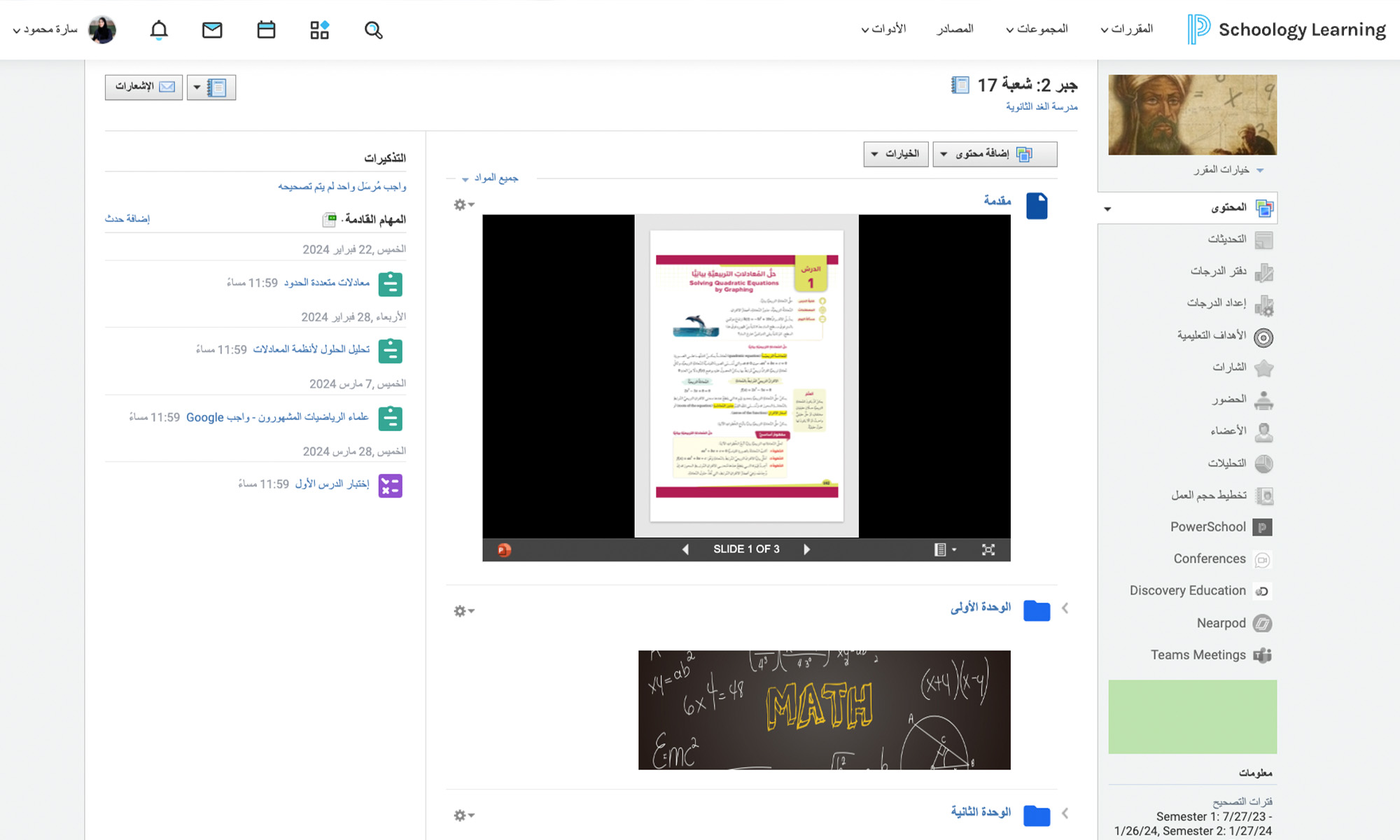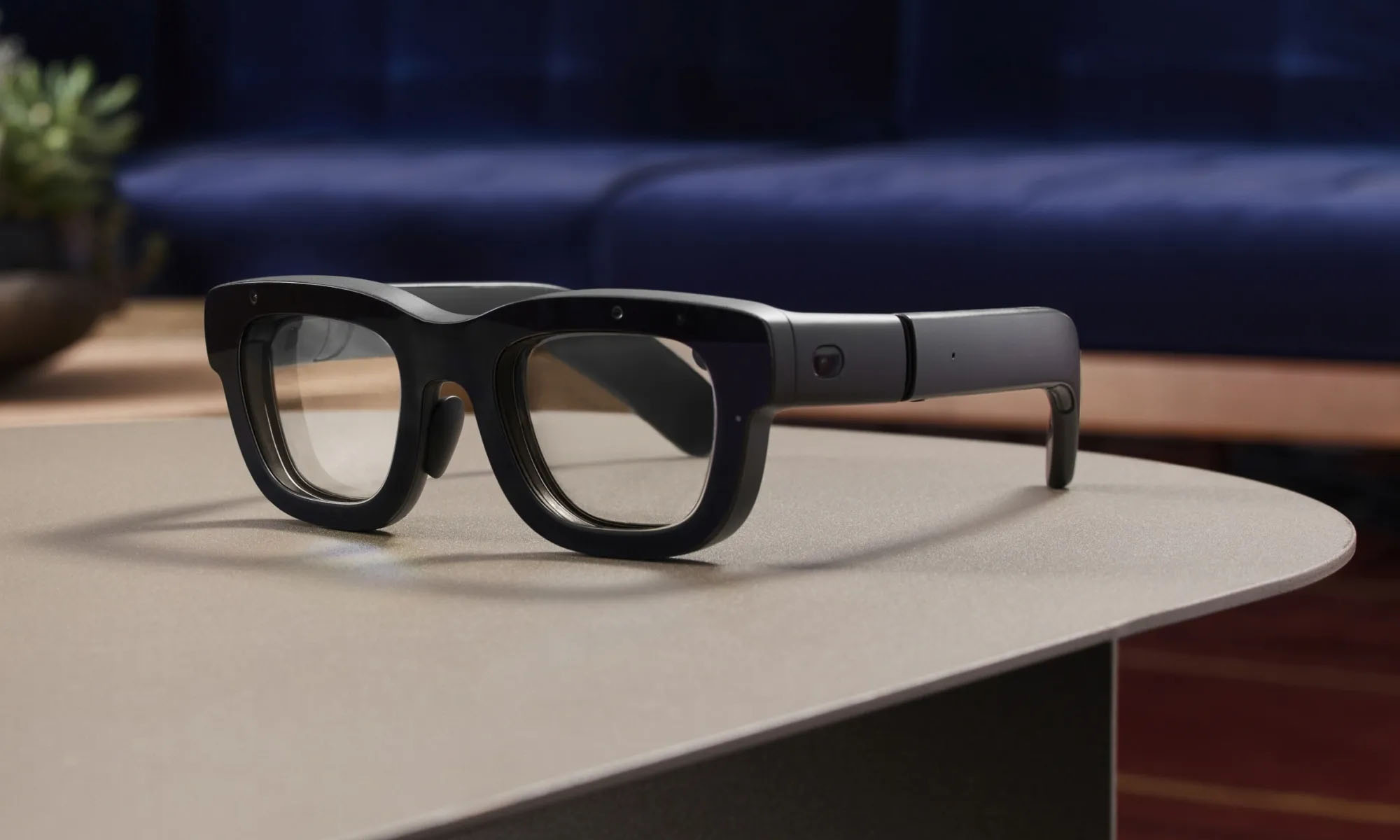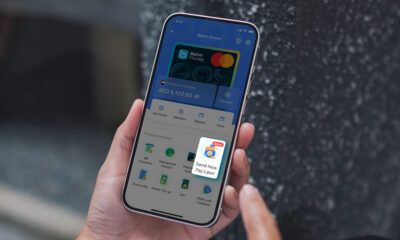News
PowerSchool Launches Arab Version Of Its EdTech Platform
The cloud-based solution is now available to Middle Eastern users, helping schools with administrative, communication, and classroom workflows.

PowerSchool, a leading cloud-based education software provider, today announced the launch of newly translated and localized solutions for the UAE and wider Gulf Coast and Middle East region.
Native-Arabic speaking educators will now be able to accomplish critical administrative, communication and classroom workflows using newly-updated Arabic translations, as well as access a right-to-left oriented interface, Hijri calendar overlay, and more.
PowerSchool’s platform is able to log student records and create reports in their native language, while teachers can now create enhanced, personalized lessons for their students and digital forms for parents.

Finally, PowerSchool’s multi-language AI-powered assistant is also in development, and the company plans to launch the tool in the Middle East in the near future.
“With the UAE and other GCC countries prioritizing digital transformation in education, we are pleased to announce the availability of our educational and operational products in Arabic,” revealed Stewart Monk, Senior Vice President & General Manager, International at PowerSchool. “This also aligns with our commitment to provide mission-critical support to education leaders to provide personalized learning for students globally”.
Also Read: Top Free AI Chatbots Available In The Middle East
Along with the launch of a new Dubai office in 2023, PowerSchool seems highly invested in localized Arabic products. The latest announcement from the company strongly signals its commitment to the Middle East and GCC, and comes after the publication of its 2024 Education Focus Report, which takes a deep dive into the region’s education trends and developments.
“PowerSchool’s commitment to providing Arabic localization across its products reflects an understanding of their diverse user base and their commitment to inclusivity,” explained Mohammed Essam, PowerSchool Lead at ESOL Education. “This investment can lead to closer collaboration with educational institutions in the Middle East, fostering innovation and progress in the education sector. Overall, this is a promising direction that could benefit both PowerSchool and the educational community in the region”.
News
Meta Reveals Orion AR Glasses, Offering A Glimpse Into The Future
The prototype was showcased at the Connect conference, bringing the company’s vision of blending virtual and physical worlds closer to reality.

Meta, the parent company of Facebook, has unveiled a working prototype of its augmented-reality glasses — named Orion — at its annual Connect conference. At the event, CEO Mark Zuckerberg outlined his vision to use the AR device to blend the real world with the virtual:
“This is the physical world with holograms overlaid on it,” Zuckerberg said as he slid the glasses from their metal case. Describing Orion as “a time machine” he added, “These glasses exist, they are awesome, and they are a glimpse of a future that I think is going to be pretty exciting”.
The Orion AR glasses are built from magnesium alloy and run on custom silicon chips developed by Meta. They offer users control via hand-tracking, voice commands, and a wrist-based neural interface. Zuckerberg said Meta plans to further refine the glasses, making them smaller, more affordable, and ready for mass production in the near future.
So far, sources have revealed that Meta aims to release its first consumer version of the Orion AR glasses by 2027, once the technology has become more cost-effective.
Also Read: Bybit Launches Islamic Account, Enabling Shariah-Compliant Trading
In addition to Orion, Meta introduced a more modest mixed-reality headset called the Quest 3S, with a starting price of $300. The company also rolled out several new AI tools, including chatbot updates and the ability for Meta AI to auto-insert personalized images into Facebook and Instagram feeds. An audio upgrade also allows users to choose celebrity voices, like Judi Dench or John Cena, for the Meta AI assistant. “I think voice is going to be a way more natural way of interacting with AI than text,” Zuckerberg said.
Finally, Meta has introduced three new versions of its Llama 3 AI models. The company continues to invest billions in AI and metaverse technologies, pushing its capital expenditure forecast for 2024 to a record $37-40 billion.
-

 News2 weeks ago
News2 weeks agoUAE-Produced “Mansour: Age Of AI” Premieres On Shahid & MBC3
-

 News2 weeks ago
News2 weeks agoApplications Are Open For The 2025 WiSER Pioneers Program
-

 News2 weeks ago
News2 weeks agoTech Startup Foodics Offers Smarter Restaurant Management
-

 News1 week ago
News1 week agoBotim Launches MENA’s First-Ever “Send Now, Pay Later” Service














